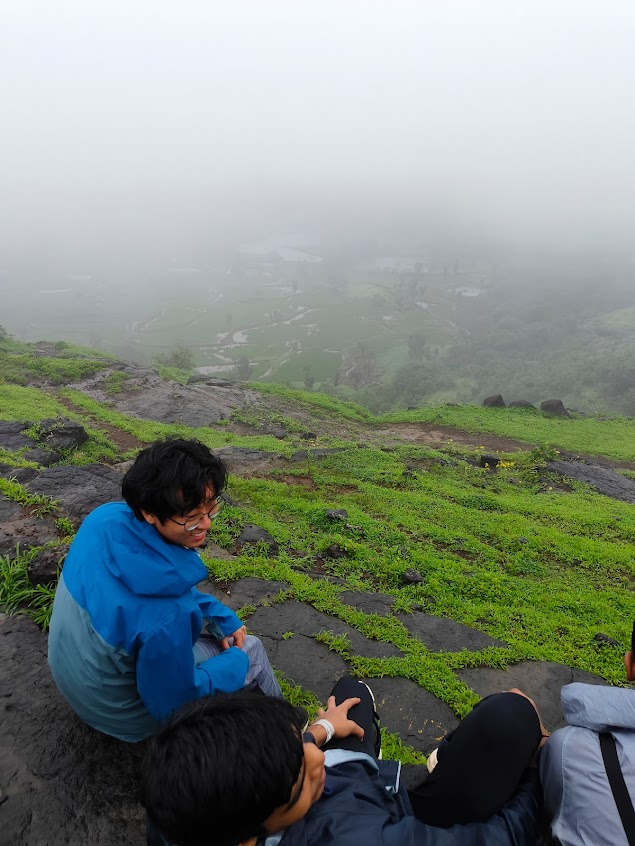Based on my prior experience with trekking that I experienced when I went to Mt. Abu, I wanted to continue this newfound hobby, as it was a great way to escape my enclosed world and enjoy nature with people I love. When the school announced the trip to Igatpuri, I was thrilled because the experience not only satisfied this desire, but also added a service component as we would be spending time with impoverished kids in a school as well as cleaning up trash around a local dam. This trip lasted 3 days, and I, along with other students, were given a variety of types and difficulties of treks in addition to the volunteering work that we did.
For activity, I trekked through the mountains of Igatpuri. On the first day, we went on a short exploration of the local area, which, on the second day, we explored further. We trekked all the way up a mountain and into the clouds, which was not only a beautiful sight, but an adequate workout as well, as my friends and I were left breathless by the top. This difficulty was furthered by the wet weather, and we had to be careful not to fall with the slick grass and mud everywhere. On the third day, we went on a trek through the farms of Igatpuri to get to a temple at the base of a mountain, which we climbed of course. The top was a huge plateau that the group rested on and took pictures on; I was transfixed by the beauty of this isolated, foggy world far above the life that I was used to. Overall, this experience was powerful in terms of its physical exertion, but all of it was worth it to take a breath of nature.
The service component of this experience mostly consisted of a visit to a local village, where we went to the main primary school and spent time with the kids. My friends and I made a plan to conduct a mathematics competition, where the class would be divided into teams and we would give them questions. Several rounds were going to be conducted, but we ended up only doing one round because the children became restless as other groups were conducting games outside. After we finished the competition (where one exceptionally bright child dominated the class), we played some games with the kids, including kho kho and kabaddi, which they enjoyed thoroughly. Another kind of service we did involved going to a local dam and collecting garbage. Around the reservoir, there were hundreds of pieces of trash that visitors had left behind, so we collected the garbage and left the area much cleaner and less polluted than we had found it.
LOs
LO1: I identified my weakness in my inefficiency in communicating in Hindi. I don’t speak this language normally, but I had to in order speak with the children in the local school. I think that I am not only more aware of this deficiency but also my capability to easily fill this void if I put the effort into it.
LO2: I had to challenge myself in order to interact with the students that we talked to at the school. These children only spoke the local language and Hindi, so I was forced to leave my comfort zone and communicate with them in their language. I don’t normally speak Hindi, so even my friends were surprised. This made me more comfortable with doing so in the future.
LO6: The main issues that we worked on were education and pollution. Both of these problems are essential to human survival and the development of our race, as well as to break vicious cycles of poverty. We addressed both of these issues in a significant way, as we left a mark on both our students’ minds and the environment as we left.
LO7: Ethically, the people who are advantaged should share their advantages with those who do not have them. Most of my time is spent working on myself, but this experience made me more aware of my ethical obligation to help the disadvantaged with more gusto. It hurts that I was not more aware of this before, but now I am much more conscious of my responsibilities.




